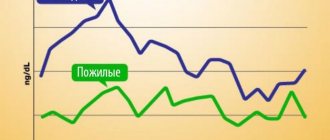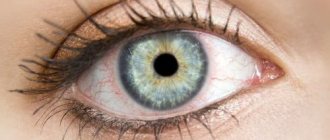Fluoxetine is one of the most commonly prescribed antidepressants. Despite its research-proven effectiveness, many patients are prejudiced against all antidepressants in general and Fluoxetine in particular, believing that they are addictive and even dependent. This issue can be clarified only after carefully studying the instructions for use of Fluoxetine. The summary will also tell you what Fluoxetine is needed for, what it helps best with, whether it is acceptable to take the medicine every other day, how to stop drinking Fluoxetine correctly and how quickly it can be removed from the body.
What is fluoxetine
Fluoxetine is a group of selective inhibitors whose action is aimed at reuptake of serotonin. It's an antidepressant. The action that suppresses depression is combined with a stimulating effect: the psychological state is stabilized, tension is reduced, dysphoria, anxiety and fear are eliminated.
Due to its anorexigenic properties, doctors use the drug to combat the clinical manifestations of bulimia.
Fluoxetine was registered in 1974. The discoverers of the drug are several doctors from Eli Lilly and Company.
In the winter of 1977, he was reported to the American Food and Drug Administration.
Since December 1987, the drug has been officially approved for sale. To date, it has not lost its leading position in the pharmacological market, despite the emergence of a wide range of new antidepressants.
Composition and release form
The drug is available in capsules.
White-green gelatin capsules contain:
- Fluoxetine hydrochloride - 11.2 mg and 22.4 mg;
- Lactose monohydrate (milk sugar);
- Microcrystalline lactose;
- Colloidal silicon dioxide;
- Magnesium stearate;
- Talc.
pharmachologic effect
In the register of medicines of the Russian Federation, Fluoxetine belongs to the group of drugs that inhibit the reuptake of serotonin - the “hormone of joy”. Its amount in the brain increases with the use of the medication, which has a beneficial effect on the psycho-emotional background. The expected effect of losing weight is a decrease in appetite and an improvement in mood.
After consumption, the drug is rapidly absorbed in the stomach, processed in the liver and then enters the brain. The maximum effect is achieved 6-8 hours after using Fluoxetine.
As for excretion from the body, 88% of the drug is eliminated in the urine, 12% in the intestinal contents. The period of complete elimination from the body is 2-3 days. Derivatives of the active substance circulate in the bloodstream for two weeks.
Release form
Fluoxetine is available in the form of capsules and tablets. The release form largely depends on the company producing the drug. The most used at the moment is the drug from Lannacher. It is produced in capsules. Most other pharmaceutical companies also adhere to the capsule form of release, and only a few - tablet form. Regardless of the release form, fluoxetine is sold in a dosage of 20 mg in one tablet or capsule. A blister usually holds 10 - 20 tablets or capsules, but the number of blisters in a package may vary.
Interaction with other substances
The incompatibility of the drug with other antidepressants, furazolidone, procarbazine has been scientifically proven. The combined use of these medications provokes the development of serotonergic syndrome. It is manifested by the following clinical signs:
- elevated temperature;
- chills;
- muscle rigidity;
- tremor;
- excitation;
- disorders of the intestinal tract;
- convulsions;
- rave;
- coma;
- fatal cases are known.
The combination of Fluoxetine with cardiac glycosides leads to displacement of each other from protein bonds, and a change in the free fraction in the blood occurs.
Do not take the drug with alcohol.
Compound
The drug contains the main active ingredient - fluoxetine , as well as a number of excipients. The concentration of fluoxetine in each tablet and capsule is 20 mg. The dosage of excipients is not calculated, since the proportion of each of them is negligible.
Excipients have no effect on the body. They are necessary in order to deliver the drug to the body and ensure its complete absorption in the gastrointestinal tract.
Excipients of fluoxetine in tablet form include: talc, starch, lactose, sugar, polyethylene glycol, calcium and titanium compounds. Fluoxetine capsules include cellulose, lactose, silicon and magnesium, and talc. The capsule shell consists of gelatin, titanium dioxide and dye. The dye can be different; as a rule, each manufacturer’s capsules have their own color.
Use during pregnancy
There have been no large studies on the use of the drug during pregnancy and breastfeeding. In some cases, women use antidepressants while pregnant. But this is done only when absolutely necessary and under the supervision of a doctor.
Women who stopped using an antidepressant before giving birth gave birth to children with “fluoxetine withdrawal syndrome.” It was manifested by rapid breathing, refusal of the mother's breast, and hyperactivity.
It is not recommended to take the drug while breastfeeding. If the need for the drug is high, it is better to transfer the baby to artificial feeding.
Fluoxetine: instructions for use
Before taking any tablets with psychotropic effects, including Fluoxetine, you should carefully read the instructions for use. It indicates why the medicine is prescribed, how long to take it and how to stop it correctly.
Indications for use
The instructions for Fluoxetine state that the indications for prescribing the drug are:
- depression;
- obsessive actions, ideas, fears;
- depression and irritability in women during menopause and before menstruation;
- bulimia – overeating due to nervousness;
- early ejaculation in men during intimacy.
The indications for use of the drug do not indicate some conditions for which the use of an antidepressant will also be effective. This is an increase in blood pressure due to stress, neuroses - psycho-emotional instability, vegetative-vascular dystonia (VSD) - a disorder in the regulation of the functioning of internal organs.
Contraindications
According to the instructions, contraindications to the use of Fluoxetine are:
- hypersensitivity to the drug;
- severe disruptions in the functioning of the kidneys and liver;
- the period of bearing a child and feeding him with mother's milk;
- children and adolescents under 18 years of age.
The drug cannot be prescribed simultaneously with other antidepressants, since most of them also affect serotonin metabolism, which is associated with the risk of developing a serotonin crisis. Its danger lies in excessive overexcitation with subsequent depression of the nervous system, confusion, hallucinations, convulsions, and coma. For the same reason, the medicine is characterized by poor compatibility with antibiotics of the furazolidone group.
These drugs can be started only after Fluoxetine has been completely discontinued. The break between taking the last capsule of Fluoxetine and the first tablet of another antidepressant should be at least 5 weeks.
But what about the opposite situation: how long after stopping taking any antidepressant is it permissible to start a course of treatment with Fluoxetine? In this case, it is enough to wait 2 weeks.
The course of treatment with Fluoxetine is carried out with caution in case of diabetes mellitus, seizures, severe thinness, parkinsonism (slowness of movements, tremors of the limbs), and suicidal tendencies.
Side effects
The list of possible side effects when using Fluoxetine is very extensive:
- headaches, dizziness;
- increased suicidal tendencies;
- anxiety, irritability;
- trembling of the limbs, feeling of heat in the body;
- difficulty falling asleep or excessive sleepiness;
- diarrhea;
- mild to severe nausea, accompanied by vomiting;
- dilated pupils, dry eyes;
- disruption of the menstrual cycle;
- decreased libido, impotence;
- weight loss;
- increased heart rate;
- allergic reactions.
If you have an allergy, the capsules should be discontinued. In other cases, a dose reduction is sometimes sufficient. In particular, this reduces the incidence of impotence, neurological complications, and digestive disorders while taking Fluoxetine. If you have sleep disturbances, you need to shift the drug intake to the first half of the day. At night, just before bed, you should not drink it. If the antidepressant does not affect sleep in any way, then you can take it at any time: in the morning, afternoon or evening.
Adverse reactions to Fluoxetine more often occur when it is combined with alcohol and strong sedatives. As a rule, in this combination, Fluoxetine is stronger and can cause harm to the body.
How to take it correctly? Dosage
As a rule, it is recommended to take Fluoxetine in the first half of the day before or after meals. The daily concentration and duration of use of the drug depend on the disease and the individual characteristics of the patient’s body.
The dose should be increased gradually, starting from 20 mg per day in 1 or 2 doses. Sometimes treatment begins by taking 1 capsule every other day. After a week, the dosage can be increased to 20 mg 2 times a day. If the effect is still insufficient, then after 5-6 days they switch to 60 mg of the drug per day, divided into 3 doses. The highest permissible daily dose is 80 mg. Capsules should also be discontinued gradually.
How long you can safely take Fluoxetine is determined by your attending physician. In many situations, the permitted duration of its use without interruption is several years.
Overdose
Against the backdrop of long-term use of Fluoxetine, patients sometimes begin to feel that it has stopped acting as before, and they independently increase the dosage of the antidepressant. Then there is a possibility of overdose and severe complications. However, symptoms of fluoxetine overdose do not only appear when recommended doses are exceeded. Against the background of increased susceptibility to the drug, Fluoxetine can make you feel ill even at moderate doses. No matter how many Fluoxetine tablets you take, if the dose is rapidly increased, the following manifestations are possible:
- motor and mental overexcitation;
- trembling of limbs, convulsions;
- arrhythmias;
- nausea and vomiting.
Treatment is symptomatic. If the tablets have been taken recently, then do a gastric lavage. Antiemetics, antiarrhythmics, and anticonvulsants are also used.
Fluoxetine during pregnancy and lactation
There have been no large-scale studies of the safety of fluoxetine during pregnancy. There are more than 2,000 known cases of using the medicine during pregnancy without negative consequences, but this is not enough to consider it completely safe. Therefore, an antidepressant is prescribed only if the expected benefit significantly exceeds the possible risk to the mother and fetus. You need to be especially careful in the 1st trimester, when the formation of organs and systems occurs. Any external interventions during this period can lead to gross pathologies of the fetus.
An antidepressant may pose a danger to the baby even in late pregnancy. Several cases of fluoxetine withdrawal syndrome in newborns have been reported when mothers took this drug shortly before delivery. The babies experienced symptoms such as motor restlessness, breast refusal, and increased respiratory rate.
Since the product penetrates well into breast milk, if it is necessary to take it, it is better to switch the baby to formula.
Fluoxetine for children
The use of the medicine in children is also contraindicated due to the lack of a complete evidence base. In some cases, an antidepressant may be prescribed to adolescents. For example, with vegetative-vascular dystonia, bulimia, neuroses. However, this is done only with the permission of the doctor in the case when the risk of complications of the underlying disease is too great compared to the possible negative consequences of taking Fluoxetine.
When using Fluoxetine in adolescents, the minimum effective dosage is prescribed. It must be remembered that the risk of suicide while taking antidepressants is higher in people under 24 years of age.
Tablet dosage regimen
The dosage of Fluoxetine is increased gradually. The initial daily dose is 20 mg, it is recommended to divide it into two doses. After a week of use, in the absence of side effects, it is allowed to increase the amount of the drug by 20 mg. 40 mg is the optimal dosage for weight loss; it should not be increased further.
But anyone who dares to increase the amount of medication must remember that 80 mg is the “ceiling”; the dosage definitely cannot be increased further. Because this is the maximum dose used in the treatment of manic-depressive disorders.
Completion of treatment should also occur gradually. The dose of the drug is reduced week by week. By stopping the use of the drug abruptly, the risk of developing “withdrawal syndrome” increases.
When the dose is reduced, slight dizziness is noted - this is acceptable. But if aggression, irritability, sleep disturbances, or headaches occur, the amount of drug consumed should be reduced even more slowly.
A course of treatment
The recommended course of treatment is 4-5 weeks. Be sure to take a break of about 2-3 months. If you want to achieve greater weight loss results, the course can be repeated after “rest”.
Analogs
Fluoxetine has a large number of analogues. Many companies produce drugs with the same active ingredient, but under different names. It is easiest to recognize a drug that, in addition to the word “ fluoxetine ,” has the name of the company in its name. For example: fluoxetine Lannacher, fluoxetine-canon, alo-fluoxetine, fluoxetine-acri. However, there are a number of generic drugs with brand names. These include:
- Prozac;
- Fluval;
- Portal;
- Floxetine;
- Oksedel;
- Fluxen;
- Flunisan;
- Prodel;
- Profluzak;
- Fluxonil.
The main active ingredient of all these drugs is fluoxetine. However, they may differ in release form, excipients, as well as side effects and contraindications. Allergic reactions may occur with one generic drug, but not with another. Before replacing one drug with another, you should consult your doctor, despite the fact that most of them are sold without a prescription.
Contraindications
Obvious contraindications for the use of antidepressants include:
- renal or liver failure;
- manic disorder;
- breastfeeding period;
- pregnancy;
- glaucoma;
- diseases of the genitourinary system;
- joint use of incompatible drugs and alcohol.
It is difficult to predict the body's reaction when:
- diabetes mellitus (a sharp increase in blood sugar is possible);
- status epilepticus (risk of increased number of seizures);
- Parkinson's disease;
- exhaustion of the body;
- children and old age;
Taking Fluoxetine during pregnancy
The use of this drug during pregnancy and lactation is not recommended, since it carries the risk of developing various disorders of the cardiovascular and nervous systems of the fetus and newborn.
Using SSRI antidepressants during pregnancy can cause serious lung problems or other complications in the baby. However, you may experience a relapse of depression if you stop taking antidepressants. If you take fluoxetine, tell your doctor right away if you become pregnant. Do not start or stop taking this medication during pregnancy without your doctor's advice.
Fluoxetine may pass into breast milk and may harm a nursing baby. Tell your doctor if you are breastfeeding your baby.
Side effects from taking
When an antidepressant is used by a healthy person whose serotonin production is not impaired, there is a high probability of developing serotonin syndrome, which can lead to not just coma, but death.
Therefore, weight loss with additional use of antidepressants must necessarily occur under the strict supervision of doctors. The drug is not able to relieve excess weight, hereditary factors, or problems with the functioning of internal organs. After all, bulimia nervosa is not always the cause of obesity.
If you notice side effects, it is recommended to stop taking the drug. These effects include:
- dizziness, headaches;
- dry mucous membranes;
- decreased performance;
- fast fatiguability;
- chronic fatigue;
- decreased quality of vision;
- decreased libido;
- soreness and swelling of the mammary glands;
- gagging, nausea, diarrhea;
- sleep disorders;
- rave;
- disturbances in the functioning of the stomach;
- skin rashes;
- painful sensations in the bones.
Reviews
Alice R .: “I suffered from recurrent depressive disorder for a long time. Almost all the medications I took caused side effects. Eventually, I began to gain weight and my mood dropped even more. The doctor prescribed me fluoxetine. I tolerated this remedy well. My mood improved and my weight began to drop. I took it for three months and everything was fine.”
Daniil P .: “Started taking fluoxetine during the depressive phase of bipolar affective disorder. At first the drug worked for me, but after a week I realized that my sex drive had decreased. At first this fact scared me, but then the doctor explained that this was a side effect of the drug. I stopped taking it and asked to prescribe me another remedy.”
Psychiatrist : “Fluoxetine is a fairly mild antidepressant from the most used group. It is prescribed to both outpatient and inpatient patients. The advantage of fluoxetine is its effectiveness and, at the same time, sufficient safety. This medicine rarely causes side effects. In addition, it is one of the few antidepressants that has an stimulating effect, and for some patients this is a very desirable effect.”
Content
Fluoxetine: how it works
The mechanism of action of the drug is based on three basic principles described below.
Reduces appetite
Decreased appetite is the first and most important component of the mechanism of action of Fluoxetine. The main thing is to understand that people who suffer from bulimia and compulsive overeating need to fight the feeling of hunger. If you take the drug if you are overweight in any way, you may end up with anorexia - a complete refusal to eat. This is the most common side effect.
Nervous system stimulation
The product has a positive effect on the nervous system - the production of serotonin. Under the influence of the hormone, mood and physical activity increase. A person begins to move more, lead an active lifestyle, and, as a result, loses weight.
Antidepressant effects
Depression is a special period in a person’s life when you want to withdraw and abuse bad habits. And some find solace in their favorite food. Another goal of the medication is to combat “stress eating.”
Pharmacological properties
The main point of application of fluoxetine, like any other antidepressant, is the brain. Fluoxetine affects the neurotransmitter structures of the central nervous system. First of all, on serotonin metabolism. Serotonin is a CNS neurotransmitter responsible for mood. The more serotonin in the central nervous system, the better a person’s mood.
Patients who suffer from depression have reduced concentrations of some monoamines, primarily serotonin, and to a lesser extent dopamine and norepinephrine. Fluoxetine increases serotonin concentrations by blocking its entry into nerve cells and reducing destruction. In addition, this drug helps activate serotonin receptors in brain cells. All this helps improve your mood.
Fluoxetine has virtually no effect on the exchange of dopamine and norepinephrine. This determines its stimulating effect on the central nervous system. In addition, the more selectively a drug acts on a specific mediator, the fewer side effects it has. Fluoxetine also does not affect the autonomic nervous system, which allows it to be prescribed to people with various diseases.
This drug interacts with the centers of the hypothalamus, which are responsible for the feeling of hunger and satiety. When taking fluoxetine, appetite is significantly reduced, which makes it possible to use it for the treatment of eating disorders. This effect is also often used by people who want to reduce their weight.
Fluoxetine has one negative property - with prolonged and frequent use it causes the opposite effect. The drug begins to block serotonin receptors, which reduces the effectiveness of this mediator in the central nervous system. This effect causes addiction to the drug. With long-term use, the dosage must be increased in order to achieve the desired effect. In order to avoid this property, fluoxetine is not taken for a very long time.
How to take fluoxetine for weight loss
The duration of use of the drug depends on the degree of obesity of the patient. Often, it takes from several months to several years to fight extra pounds. The entire period of use of the drug must occur under the strict supervision of doctors. Patients note that the process of weight loss occurs smoothly with a gradually increasing effect.
It is recommended to use the medicine in the morning. People who do not suffer from insomnia can take the medication before bed. As mentioned above, the use of Fluoxetine should occur in increasing dosages.
Fluoxetine for weight loss - reviews from those who have lost weight, doctors’ opinions
Reviews on the Internet are both positive and negative. Young mothers who used the drug to combat postpartum depression often share their experiences on forums. But even a large number of reviews cannot become the basis for choosing an antidepressant on your own, because you need to think not only about yourself, but also about the baby.
Other reviews indicate that many people quickly lost weight after starting to take the drug to combat depression. Most likely, this is due to an improvement in the psycho-emotional background. After all, most people’s problems arise from their heads.
Now let’s pay closer attention to the opinion of a specialist.
Conditions for dispensing from pharmacies
The antidepressant is dispensed from pharmacies according to prescription form No. 107-1/u. The conditions of dispensing are regulated by law, so the pharmacist has every right to refuse to give you the drug without a prescription, even if there is a medical prescription. The doctor must prescribe you a medicine, indicating its international name in Latin - Fluoxetine.
In addition to the international name in Latin, the prescription form indicates the method of use, in what dosage and for how long to take the antidepressant (instructions for use for the patient). The form is certified by the signature and personal seal of the doctor, as well as the seal of the medical institution.
The medicine can also be ordered from an online pharmacy, but upon receipt, they usually still ask for a prescription.
Doctor's opinion
The instructions say that Fluoxetine is used to treat bulimia and reduce appetite. Women who are desperate to lose weight perceive this information as a signal to action: they rush to start taking an antidepressant, regardless of the reason for the appearance of excess pounds. Such decisions do not always lead to a positive result; most likely, the body is endangered.
Patients with bulimia and compulsive overeating, i.e. uncontrolled eating due to stress, they really lose weight by taking Fluoxetine. For such people, food is not a way to fill up, but an opportunity to get positive emotions and abstract from problems. In such cases, the remedy will help reduce the frequency of overeating attacks and normalize eating behavior. Therefore, people suffering from psychogenic obesity will definitely lose weight.
If the cause of excess weight is hormonal disorders, heredity, pathologies of metabolic processes, then it is pointless to expect a positive result from taking a miracle drug. And for people with a normal amount of serotonin in the blood, the drug can generally cause harm.
Even with bulimia nervosa and “stress eating,” Fluoxetine is not the only method of combating it. Often, successful treatment of obesity is carried out exclusively in inpatient settings, when the help of psychotherapists is fundamental. In addition, the guarantee that the lost kilograms will not return is reduced to a minimum. Therefore, do not waste extra money, time and nerves on yet another advertised product that can bring not only benefits, but also colossal harm to the body. It is better to choose a weight loss system together with an experienced specialist.





